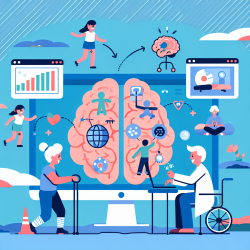The Covid-19 pandemic has significantly impacted the mental health of individuals worldwide, particularly those with pre-existing mental disorders. The research article "Perceived Impact of Covid-19 Across Different Mental Disorders: A Study on Disorder-Specific Symptoms, Psychosocial Stress and Behavior" offers crucial insights into how the pandemic has exacerbated symptoms and stress levels in these populations. As a practitioner, understanding these findings can enhance your therapeutic approach and support your clients more effectively.
The study revealed that individuals with depression (DP), generalized anxiety disorder (GAD), illness anxiety disorder (IA), and body dysmorphic disorder (BDD) experienced a notable increase in symptom severity during the pandemic. Additionally, all participants, regardless of mental health status, reported higher levels of psychosocial stress compared to pre-pandemic times. These findings underscore the importance of tailored interventions to address the unique challenges faced by individuals with these mental health conditions.
Key Takeaways for Practitioners
- Increased Symptom Severity: Be aware that clients with DP, GAD, IA, and BDD may exhibit heightened symptoms. Regular monitoring and adjustments to treatment plans are essential.
- Elevated Stress Levels: Implement stress management techniques, such as mindfulness and relaxation exercises, to help clients cope with increased stress.
- Behavioral Adjustments: Encourage clients to maintain a structured routine, engage in physical activity, and seek social support through virtual means to mitigate the effects of isolation.
- Teletherapy: Utilize teletherapy to ensure continuity of care, especially for clients who may have difficulty accessing in-person services.
Encouraging Further Research
While the study provides valuable insights, it also highlights the need for further research on the long-term effects of the pandemic on mental health. Practitioners are encouraged to stay informed about emerging research and incorporate new findings into their practice. Engaging in professional development opportunities, such as webinars and conferences, can help you stay updated on the latest evidence-based practices.
To read the original research paper, please follow this link: Perceived Impact of Covid-19 Across Different Mental Disorders: A Study on Disorder-Specific Symptoms, Psychosocial Stress and Behavior.
By leveraging the insights from this research, practitioners can better support their clients during these challenging times and contribute to the broader understanding of mental health impacts during pandemics.










